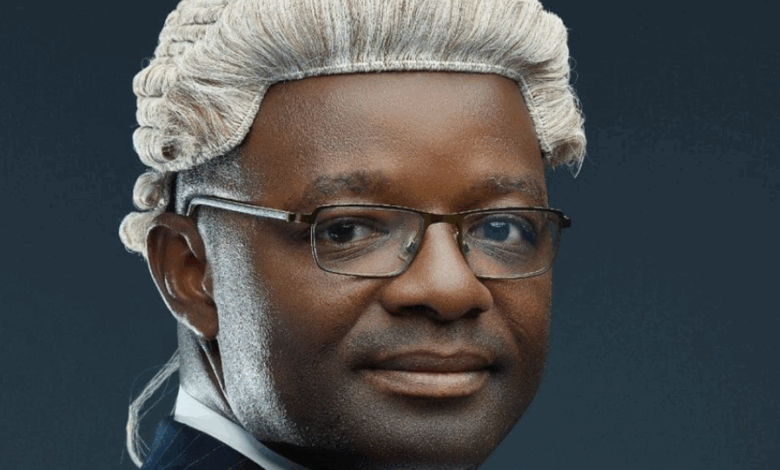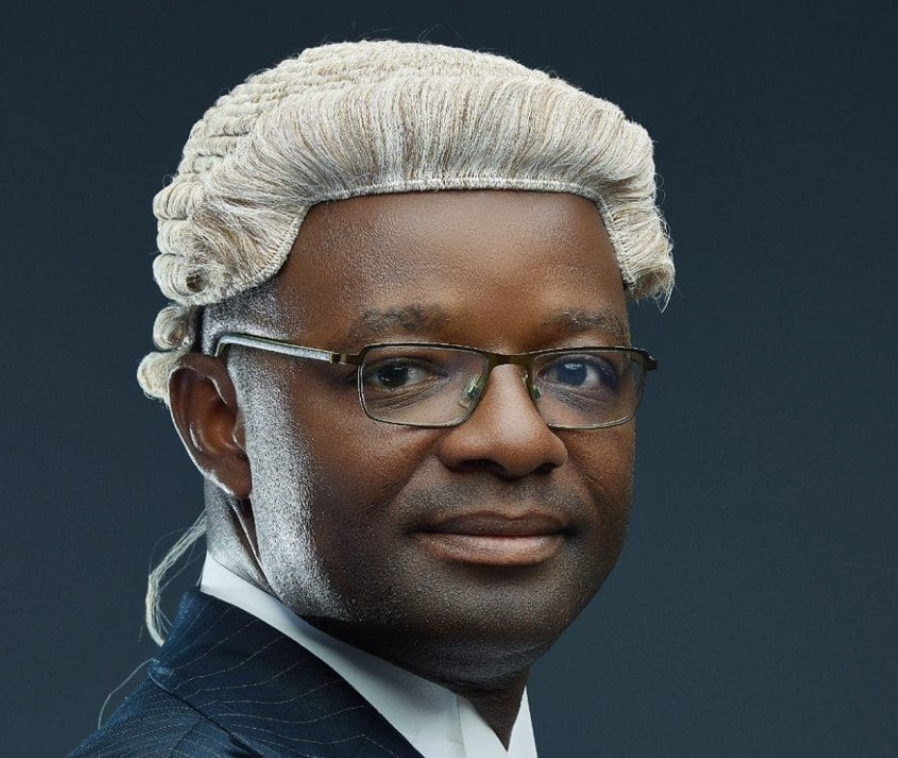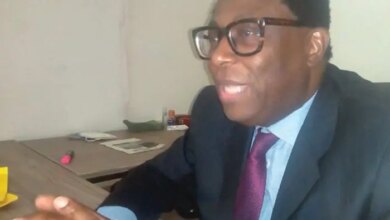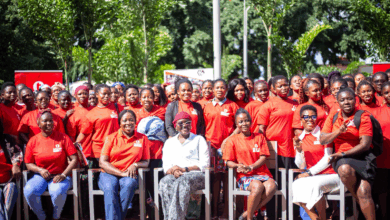The president is not a court: Why Ansa-Asare’s jurisdiction claim is constitutionally bankrupt


No court has jurisdiction to hear a case after the president acts on it is palpable rhetoric. In the wake of the President’s decision to remove Chief Justice Gertrude Torkornu and the subsequent filing of a suit to challenge this action, a startling assertion has been made by legal advocate Ansa-Asare. He has proclaimed that Justice Torkornu’s case is “dead on arrival speaking on Joy News “The Pulse, on Friday, October 17, because, in his view, “no one has the jurisdiction to deal with a matter which has been dealt with by the president.”
This statement, while undoubtedly provocative, is fundamentally flawed. This position must equally be condemned on arrival as reflecting a dangerous misunderstanding of the 1992 Constitution and, if left unchallenged, threatens the very foundations of our democratic structure.
Contrary to this assertion, the 1992 Constitution explicitly establishes the judiciary’s power and duty to review all executive actions. The claim that a presidential action is beyond judicial scrutiny is not only erroneous but is fundamentally anti-democratic and a direct assault on the sacred principle of the separation of powers.
The bedrock principle that Ghana is governed by a constitution that deliberately divides state power into three co-equal branches: the Executive, the Legislature, and the Judiciary. This tripartite structure is not a mere suggestion; it is the central mechanism for preventing the concentration of absolute power in any single pair of hands. The Judiciary’s role as the interpreter of the law and the Constitution is its primary mandate in a robotic function to check on the other arms of government, not excluding the president.
This principle is not implicit; it is explicitly codified. Article 125(1) of the 1992 Constitution leaves no room for ambiguity: “Justice emanates from the people and shall be administered in the name of the Republic by the Judiciary, which shall be independent and subject only to this Constitution.” The phrase “subject only to this Constitution” is paramount. It means the Judiciary is subordinate to the supreme law of the land, not to the directives of the President, all things being equal. However, in the scope of constitutionality, the president’s directives do not supersede those of the judiciary in whatever manner whatsoever unless Ghana has reversed its constitutionality concept to the reverse gear at a high accelerated speed.
Furthermore, Article 130(1) grants the Supreme Court “exclusive original jurisdiction in all matters relating to the enforcement or interpretation of this Constitution.” The critical question at the heart of Justice Torkornu’s suit—whether the President acted in accordance with the Constitution in removing a Chief Justice—is the exact type of matter the Supreme Court is uniquely empowered to resolve.
Mr Ansa-Asare’s argument is fundamentally flawed due to a critical distinction: the President’s removal of the Chief Justice constitutes an executive act, devoid of judicial proceedings. To assert that this action is inherently immune from review would be to grant the Executive Branch judicial authority over its own actions, a notion that is antithetical to the principles of a civilised legal system. The notion of absolute immunity in this context is a fallacy that has no place in Ghana’s constitutional jurisprudence. “The matter that the President dealt with was the decision to remove. Adversely, the ‘matter’ now before the courts is entirely different: it is the legality and constitutionality of that very decision. Is the Judiciary to be a silent spectator when the core provisions governing the removal of a senior judge are potentially being bypassed? The Constitution resoundingly answers, “No! explicitly no!! Mr. Ansa-Asare>
The Supreme Court has already spoken; the principle of judicial review is not a theoretical fantasy; it is a living, breathing reality affirmed repeatedly by our Supreme Court. The doctrine of stare decisis (following precedent) means these past decisions are binding law.
- J.H. Mensah v. Attorney-General (1996-97): In this landmark case, the Supreme Court unambiguously asserted its authority. The court held that the Constitution is the supreme law, and any act or omission inconsistent with it is void. The Judiciary, the Court stated, has the solemn duty to ensure that all organs of state, including the Executive, act in conformity with the Constitution.
- NPP v. Attorney-General (CI 78 Case): This case reinforced that the President’s
powers are not absolute. The Supreme Court examined the President’s exercise of legislative power and struck it down for failing to comply with constitutional procedures. This is a direct precedent for the judiciary reviewing and invalidating a presidential action that oversteps constitutional boundaries and that prof. if the matter tabled is of a kind that clashes with the constitutional boundaries of the republic, it should not be a no-go area for the judiciary at the mercy of the president’s armchair. - Martin Amidu v. Attorney-General (Waterville & Woyome Cases): This series of cases have become synonymous with judicial enforcement of accountability. The Supreme Court, through these rulings, has consistently demonstrated that no one, not even the President or their agents, is above the law. The Court’s power to scrutinize executive conduct and prevent the abuse of public resources and power is a cornerstone of our constitutional architecture.
To argue that the President’s action in removing the Chief Justice is beyond the purview of this same judiciary is to ignore the entire jurisprudential history of the Fourth Republic. But in the Akan words of wisdom: “If the drum doesn’t follow you, praise it till it does”
The necessity for judicial review in this specific instance is glaring. The Constitution does not grant the President an arbitrary power to remove a Chief Justice at will. Article 146 establishes a detailed, rigorous process for such a removal. It requires a petition, a preliminary investigation by a committee of the Judicial Council, a right to a hearing for the judge, and a final decision by a vote of not less than two-thirds of all members of Parliament.
The fundamental questions for the court are therefore: Was this elaborate process, designed to protect judicial independence, followed? Were the grounds for removal the “stated misbehaviour or incompetence” or “inability to perform the functions of office” as constitutionally mandated? To bypass this process on the whims of the executive would be a flagrant violation of the Constitution and a catastrophic blow to judicial independence. And to ascertain whether or not the process has been duly followed is the preserve of the judiciary, but not that of presidential “veto powers”, for want of a better expression.
Conclusion:
In conclusion, the argument that Justice Torkornu’s case is “dead on arrival” is itself constitutionally stillborn. It is a doctrine of presidential infallibility that finds no home in Ghana’s 1992 Constitution. Our charter, fortified by decades of sound judicial precedent, establishes a government of laws, not of men, in upholding democracy against the dangerous rhetoric of prof’s nature.
Pronouncements like these are dangerous because they seek to pre-empt the judicial process and create a public narrative that challenging executive power is futile. This erodes the very legitimacy of our justice system. In our democratic dispensation, the courthouse doors must remain open to all citizens, including the Chief Justice, to hold power to account. This case is not a nuisance; it is a vital test of our constitutional mettle. We must stand firm and allow the judiciary to perform its sacred duty, free from the intimidation of extra-judicial pronouncements that threaten to undermine the Rule of Law itself.
Daniel Adjei aka ab-initio
@Azumah Legal Consult Tema
0243560767
DISCLAIMER: The Views, Comments, Opinions, Contributions and Statements made by Readers and Contributors on this platform do not necessarily represent the views or policy of Multimedia Group Limited.
DISCLAIMER: The Views, Comments, Opinions, Contributions and Statements made by Readers and Contributors on this platform do not necessarily represent the views or policy of Multimedia Group Limited.
Source link




